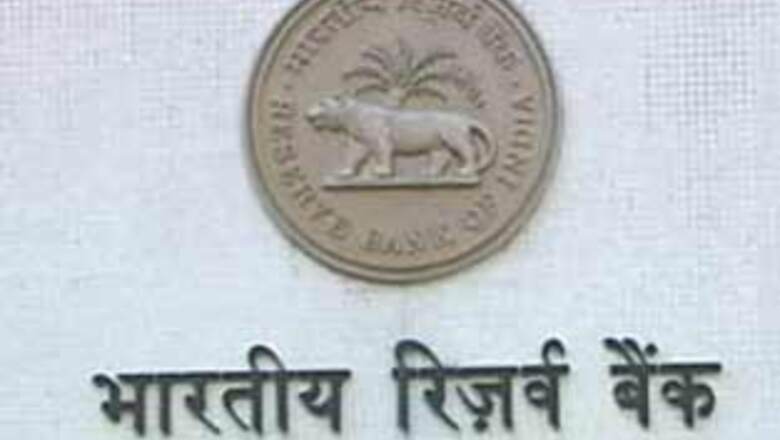
views
Mumbai: The Reserve Bank of India on Wednesday attempted to address the country's deepening economic woes - which became evident with the third quarter economic growth falling to 5.6 per cent, the lowest since 2003 - by reducing the repo and the reverse repo rates by 50 basis points each.
The repo rate (rate at which banks borrow money from RBI), which was last revised on January 2, will now come down to 5 per cent, while the reverse repo rate (rate at which RBI borrows from the banks) has come down to 3.5 per cent.
The revision comes more than a month after RBI's quarterly review of the monetary policy.
On January 27, when contrary to industry expectations, no cut in key rates were announced.
Both repo and reverse repo rates saw a 100 basis points reduction on January 2.
A reduction in the repo rate lowers the cost of borrowings for commercial banks. While lowering of the reverse repo rate makes it less lucrative for banks to park funds with the central bank.
Lowering these rates help in infusing liquidity in the economy by ensuring commercial banks have enough funds at their disposal.
Overall, the growth for the first nine months of the current fiscal has dropped to 6.9 per cent, as opposed to the impressive 9 per cent economic expansion in the corresponding period last fiscal.
"The global financial and economic conditions have further deteriorated as revealed by the latest available information," the central bank said in a statement on Wednesday.
"India's growth trajectory has been impacted both by the financial crisis and the follow-on of global economic downturn. This impact has turned out to be deeper and wider than anticipated earlier," RBI said.
"It is expected that the reduction in the policy interest rates will further encourage banks to provide credit for productive purposes at viable interest rates. The Reserve Bank on its part would continue to maintain ample liquidity in the system."
According to the latest official data, overall exports growth during 2008-09 (April-January) at 13.2 per cent was significantly lower than the 24.2 per cent registered during the same period last fiscal.
With the index of industrial production (IIP) registering a negative growth of 2 per cent during December 2008, IIP growth during the first nine months of this fiscal has been only 3.2 per cent against 9 percent during the same period last fiscal.
Despite reduction in key rates between intervals, RBI expressed concern over the paucity of credit in the market urging commercial banks not to deny funds to credit-worthy enterprises in order to maintain economic momentum.
"Even as some public sector and private sector banks have cut lending rates in response to the Reserve Bank's monetary policy stance, concerns over rising credit risk together with the slowing of economic activity appear to have moderated credit growth," it said.
"The Reserve Bank continues to urge banks to monitor their loan portfolio and take early action, to prevent asset impairment down the road and safeguard the gains of the last several years in improving asset quality. At the same time, banks should price risk appropriately and ensure that creditworthy enterprises continue to get funding."
RBI's stance was echoed by industry, with Federation of Indian Chambers of Commerce and Industry (FICCI) appealing to banks to increase lending.
"By cutting the repo rate, the Reserve Bank has signalled to the Indian banking sector to cut their interest rate to consumers and producers alike. FICCI urges the banks to take this cue and cut interest rates significantly in the weeks ahead," said chamber president Harsh Pati Singhania in a statement.
However, at the same time, Singhania expressed the need for further lowering of key rates, stating: "FICCI is waiting for a composite monetary stimulation package where reverse repo rate will be pushed down to 3 percent."
But Sajjan Jindal, president of Associated Chamber of Commerce and Industry (Assocham), had a different view. "A 50 basis point cut in repo rate and reverse repo rate is enough at this juncture and beyond that industry should not demand," he said.


















Comments
0 comment